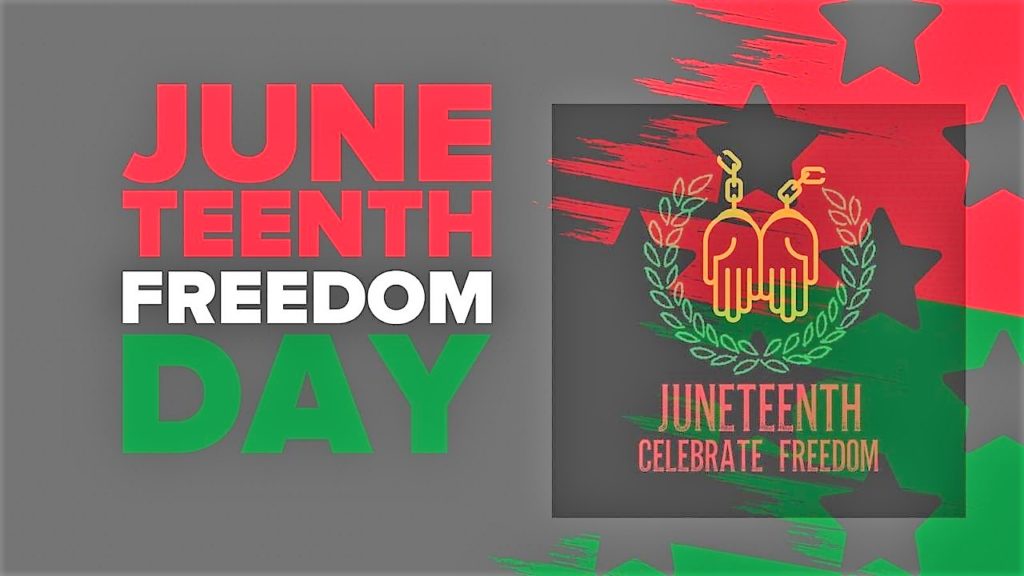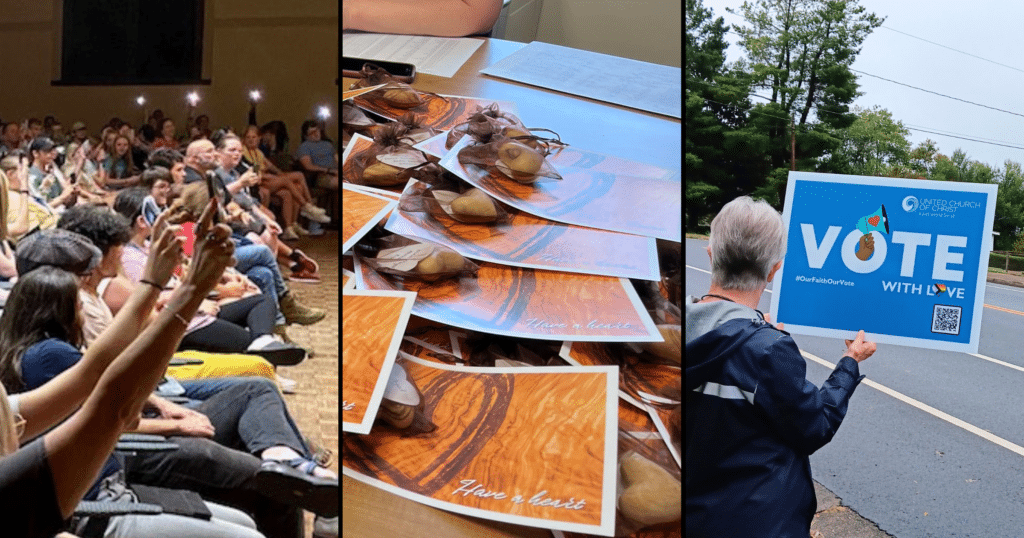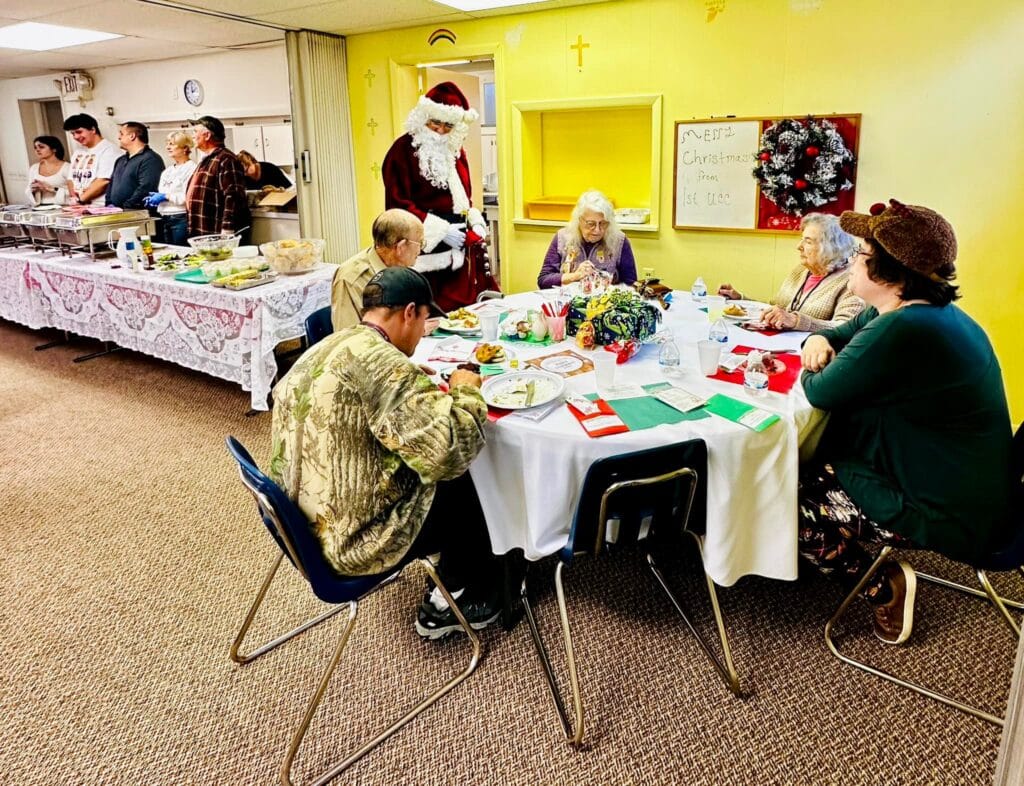Juneteenth observances invite entire UCC to recall slavery’s end, commit to action
Ministries of the United Church of Christ are inviting members and friends of the denomination to take part on Friday, June 19, in virtual commemorations of the official end of slavery in the United States and to use the occasion to join a long-term antiracist movement.
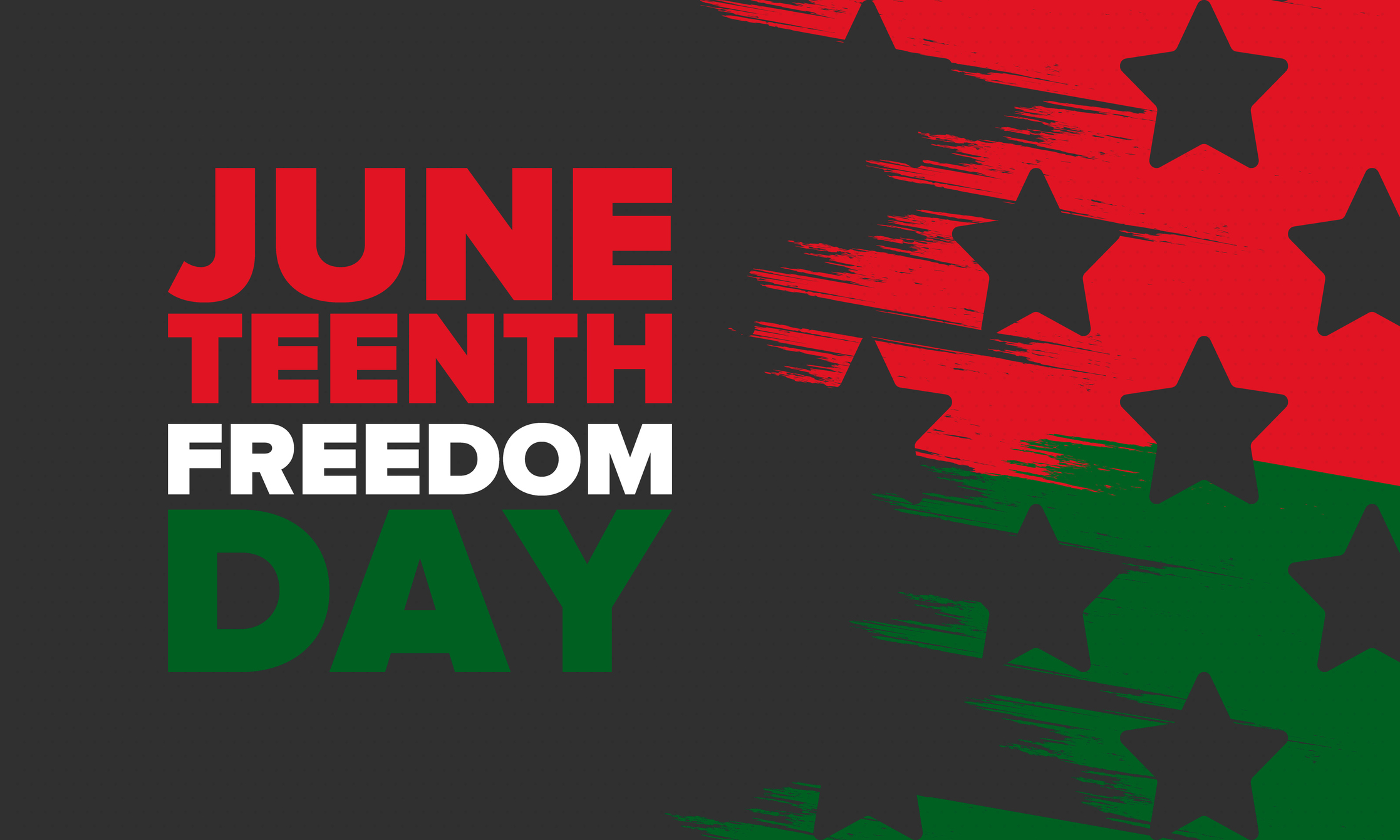 “And Still We Rise” is the title of a live “UCC Churchwide Event: Juneteenth 2020” that will be produced and hosted on the webinar platform Zoom by African American members of the denomination’s staff. Registration is available here for the noon EDT program, which is billed as the launch of four years of focused antiracist programming in UCC Racial Justice Ministries.
“And Still We Rise” is the title of a live “UCC Churchwide Event: Juneteenth 2020” that will be produced and hosted on the webinar platform Zoom by African American members of the denomination’s staff. Registration is available here for the noon EDT program, which is billed as the launch of four years of focused antiracist programming in UCC Racial Justice Ministries.
And in the UCC’s New Hampshire Conference, the Racial Justice Mission Group has created a special “Celebrate Juneteenth” Facebook page. Its daily cultural contributions from African Americans cover everything from Black history to poetry to sweet potato pie.
Juneteenth commemorates June 19, 1865, when Union soldiers arrived in Texas with news that the Civil War had ended and enslaved people were now free – more than two years after President Lincoln’s Emancipation Proclamation, which had become official Jan. 1, 1863.
Current context heightens urgency
The UCC Juneteenth observances were being planned before the coronavirus pandemic and the May 25 killing of George Floyd in Minneapolis, which prompted international uprisings against police violence.
The Zoom event’s description and invitation notes that “the African American community has been devastated by COVID-19” and mentions police and white vigilante violence, too: “In this moment we are witnessing public lynchings and state-sanctioned violence against black bodies. Together we must stop the murders of African descendant people! … There is an urgency to dismantle systems and institutions perpetuating and supporting racists and racism.”
“As we all are impacted by current events, now more than ever is a time when many of us are seeking out ways in which we can learn more about each other and the heritage that makes each of us unique,” the New Hampshire mission group said in one of its Facebook posts.
Both the national and New Hampshire projects are weaving elements of remembrance, honor and lament together with aspects of healing, education and celebration of African American brilliance.
Commemorating – and calling to action
The 90-minute “And Still We Rise” webinar will offer a mix of live and recorded segments on such topics as “The Sacredness of Black Lives,” “Sacred Memory: People of African Descent,” “Our Oral Traditions,” “Our Sacred Rituals,” “Connections to the Cradle of Civilization,” “Resistance is in our DNA,” “Honor the Elders,” “How are the Children?” and “Public Faith and Political Action.”
Among its featured speakers are the Rev. Karen Georgia Thompson, UCC associate general minister; Nevada state Sen. Patricia Spearman; UCC storyteller Valerie Tutson; and several staff members from the UCC national and Conference settings. Video clips will include reflections by the poet Maya Angelou on the topic “I Am Human,” and excerpts from a sermon, “When is Someday,” by the Rev. Otis Moss III of Trinity UCC, Chicago.
Importantly, the webinar will be a call to four years of action, said the Rev. Velda Love, UCC minister for racial justice. Participants will be invited to be “part of the movement to protect black lives and create long-term sustainable movements towards liberation, equity, and healing, and calls to action for repair and reparations,” she said. “We are called to stand in solidarity with protestors, grieving parents, and young people across multiple cultures and ethnicities nationally and globally. There must be a radical shift to reimagine and reinterpret the Bible from the lived experiences of people of color, especially women of color.”
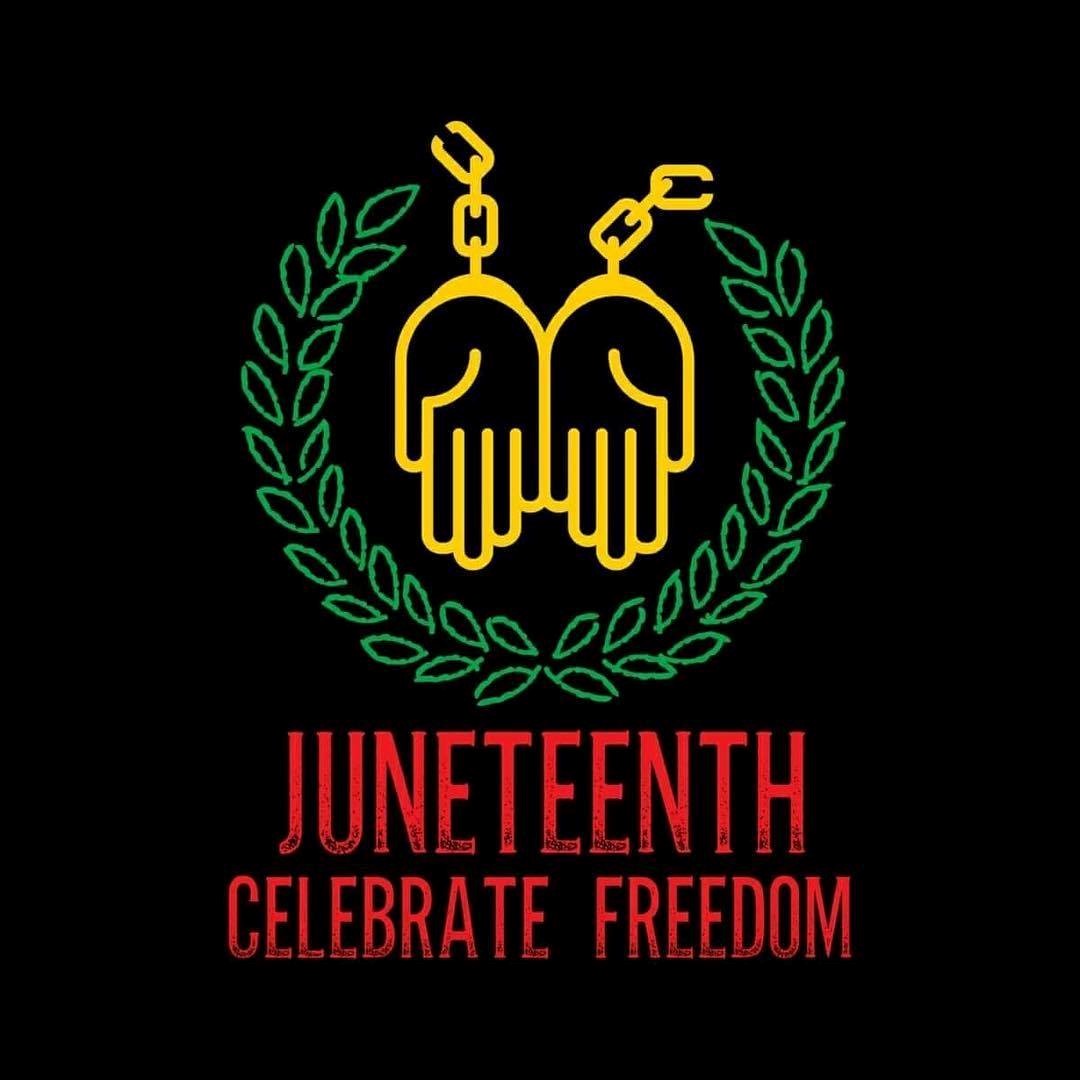 That work, Love said, will include efforts to eradicate “stand your ground” gun laws, deescalate violence by law-enforcement officers, and connect people with existing movements, such as the UCC’s Our Faith, Our Vote initiative and the United Nations’ International Decade for People of African Descent.
That work, Love said, will include efforts to eradicate “stand your ground” gun laws, deescalate violence by law-enforcement officers, and connect people with existing movements, such as the UCC’s Our Faith, Our Vote initiative and the United Nations’ International Decade for People of African Descent.
Perception of state as white misses African American contributions
In New Hampshire, with annual observances of Juneteenth just signed into state law in 2019, the UCC Conference’s Racial Justice Mission Group was making big plans in 2020. “In January, we envisioned an in-person celebration and were set to start event planning,” said Harriet Ward, a group member from Pilgrim UCC Brentwood-Kingston. Because of COVID-19, the team turned to Facebook as an alternative (click on the image at left to visit it). Within a week of being launched, it already had 200 followers, she said.
Its daily posts so far feature music and Ted Talk videos, information on the Portsmouth Black Heritage Trail, and links to webinars on “Living History,” “A Soul Food Cooking Show,” “Songs to Feed the Soul” and “Weaving Stories of the Enslaved.”
The New Hampshire group said its Juneteenth Celebration mission is to create greater visibility for the African American experience “in a state and geographic region that is historically perceived as demographically white.” Census statistics put New Hampshire’s population at 93 percent white. But to focus on that, the team said, is to miss the truth “that people of African heritage have always been part of New Hampshire history. The narrative of enslaved African people and their descendants is far too often untold and denied.”
The North took part in slavery, too
Ward said the celebration page is devoting June to contributions from people whose ancestry includes enslaved Africans. “Hopefully this will spark interest in our cultural gifts,” she said. “Beginning in July, we will widen that circle and welcome content from people of all races, ethnicities and cultures who would like to join in our Juneteenth celebration of freedom and resilience.”
One national UCC leader who answered the call for contributions is Thompson, who is also a poet. The page is featuring her poems regularly. Among those posted so far are “Barely Breathing” (with Keon Heywood, 2018; they are seen reading it in the video below), and “Days of Fire” (2017), written in response to a march by white supremacists in Charlottesville, Va., including passages like this:
fire on crosses
fire by night …
bringing torture and death
to what you tried to own
fire in your hand
flame missing from your soul
Black lives can not be bought or sold
It’s important to remember that Northern states participated in slavery, too, the Conference mission group said: “Remember that in New Hampshire, slaves were not legally freed until the Emancipation Proclamation in 1863, though many New Hampshire people fought on the side of the Union. New Hampshire was not a free state.”
“Americans,” the group said, “this is our collective history and a narrative that deserves to be shared.”
Related News
Year in Review: Top news highlights of 2024
The United Church of Christ News team has spent each week of 2024 delivering stories that...
Read MoreNo more lonely little Christmases: Chasing away the blues now and into the New Year
With the loneliness epidemic in the U.S. continuing to affect every one in five people, many...
Read MoreUCC Annual Report video brings to life impactful ministries
Leaders of the United Church of Christ are thrilled to share the newly released 2024 Annual...
Read More